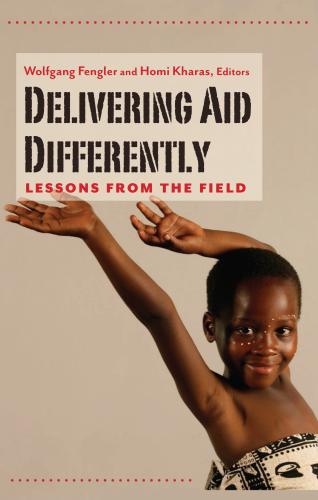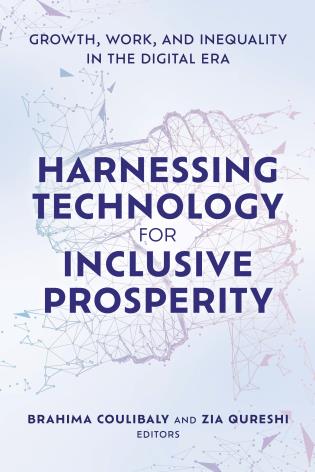This summer, I will return to Kenya for a family vacation before my older children leave for college. When I was living in Nairobi from 2009-2013, people sometimes said they liked my articles and presentations, because I was “so much more optimistic” than everyone else. While I welcomed the compliments, I didn’t fully endorse them either, because I felt that my team and I were just doing our best to look factually at the numbers and explain them as objectively as possible: no spin, just the facts. Indeed the trends we saw were at odds with the widely held perception of Africa as a “Hopeless continent,” a vision conveyed by The Economist in an article of 20 years ago (on which the magazine later backtracked).
These thoughts came back to my mind when I was reading three books that recently came out: “Sapiens” (Yuval Noah Harari), “Factfulness” (Hans Rosling) and “Enlightenment Now” (Steven Pinker). Despite their differences in focus and historical perspective, they all strive to make us better understand the world we live in. All three books present refreshing counterpoints to the general pessimism that underpins the ambient populism and dystopian fears.
Surely, not everything is getting better. People still die too early, often from communicable and avoidable diseases. Man-made disasters also strike too often. However, as Steven Pinker notes: “Development is not that every aspect of life is getting better all the time. This would not be development. This would be a miracle.”
Pinker and Rosling document in detail—with well-crafted statistics, laid out over hundreds of pages—the many ways in which the world has become a better place on almost all accounts. Simply put, it is undeniable that people in most parts of the world are getting wealthier, healthier, and wiser. Rosling’s “Factfulness” starts with a quiz of 12 questions—ranging from “How many children will there be in 2100?” to “In the last 20 years, the proportion of the world population living in extreme poverty has almost doubled, stabilized or reduced by half?”—to which he then applies his “chimpanzee test”—the likelihood that a random choice is superior to that of humans. Humans always seem to fail the test: even CEOs at the World Economic Forum.
The belief or perception that things are much worse than they really are is widespread and I believe it comes with significant detrimental impacts on societies. If you think that disaster can strike you at any moment, you will most likely overinvest in safeguarding your security and underinvest in your education or other aspects of your well-being. The political and civic implications are also detrimental: “The problem with dystopian rhetoric is that if people believe that the country is a flaming dumpster, they will be receptive to the perennial appeal of demagogues,” writes Pinker. At the same time, the opposite perception—that things are always and necessarily changing for the better—can also be counterproductive for, if so, why bother trying to make a change?
A more constructive approach is one that acknowledges that things are getting better but that this progress is neither automatic nor optimal.
But if the facts are so clear, why are we all still so pessimistic? My reading of the three books offers three main explanations:
First, our brains are wired in such a way that we are naturally highly receptive to risks. Anthropological history would argue this is because our ancestors were always on the lookout for predators, since their chances of being killed by animals or other human beings were once (and for many centuries) very high. A portion of the brain—the amygdala—screens everything for negative news. Therefore, humans are wired to pay 10 times more attention to negative news than positive news. The reason is that until not too long ago, Sapiens were one of the underdogs in the savanna. According to Harari, we are thus “full of fears and anxieties over our position, which makes us doubly cruel and dangerous.” Today, you can simply watch the evening news on TV to understand how this evolutionary feature of our brain still prevails long after we became—mostly—safe from roaming lions and bandits.
Second, negative news is bigger news as it is more dramatic (natural disasters, wars, and famines), sudden, and spectacular than positive events, which tend to be more gradual. The 24h news cycle will always find some (negative) event somewhere, which can be covered, in a way that is much easier and sadly “sexier” to the media and the public than positive news. The devastating floods in Mozambique make the evening news, not the stunning fact that 8,000 Indonesian escaped poverty that very same day.
Third, this “negativity bias” is further amplified in the era of social media. In the past, traditional authorities and intermediate bodies—churches, political parties, trade unions, sports clubs—neutralized extreme positions. Today these traditional authorities of intermediation have largely crumbled, and new forms of interactions put people directly in touch with one another, and specifically with like-minded folks, including for extreme positions.
Everyone has a responsibility to counter this “de-factualization” because the “media and intelligentsia were complicit in populists’ depiction of modern western nations” (Pinker). A starting point is to make positive news more newsworthy, as Harari, Pinker, and Rosling have already done. Here are two specific suggestions to help create more balanced and fact-based news:
- Put numbers in context—globally and historically: Share the totals, put things in perspective but in a way that allows everyone to absorb it instantly. For example, the World Poverty Clock presents a very complex topic in a very user-friendly way. But it does not lose its complexity as it always puts each number in the context of the total (by country, continent, and the world). This is why it is now being used in many schools. Too often in the media and even in academic articles, we only look at a subset of an issue and then make inferences without looking at overall trends. Pinker makes a similar point historically: “An American in 2015, compared with his or her counterpart a half-century earlier, will live nine years longer, have had three more years of education, earn an additional $33,000 per family member and have an additional eight hours a week of leisure.”
- Make development and good news more exciting. Everyone who follows sports closely knows the power of league tables and rankings. The World Bank’s “Ease of Doing Business” exercise has been doing exactly that and created incredible focus on those simple things governments can do to reduce bureaucracy for businesses. Doing Business created controversies and its methodology has been upgraded over time, but this is precisely a sign of its success.
As I think of my upcoming holiday, I look forward to seeing how Kenya has progressed since I left it, and this may well be the subject of a future blog!
The Brookings Institution is committed to quality, independence, and impact.
We are supported by a diverse array of funders. In line with our values and policies, each Brookings publication represents the sole views of its author(s).











Commentary
Why are we so pessimistic?
June 13, 2019